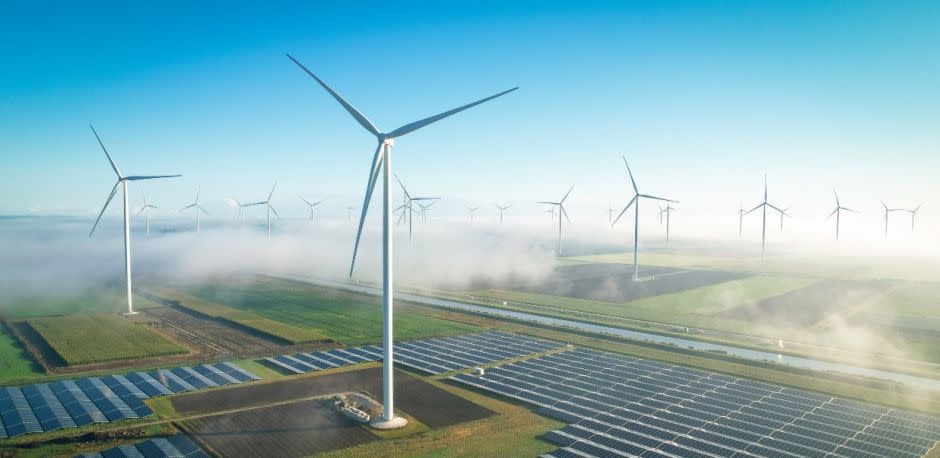Europe will need to invest €800bn by 2030 in its energy infrastructure alone to meet climate goals and keep its industry competitive, a new report has found.
The European Round Table for Industry, an influential Brussels lobby group, said in a report published Tuesday that the EU targets of reducing and reaching net zero CO₂ emissions by 2050 would require massive investments in power grids, energy storage and carbon capture facilities.
While the €800bn investment tag was necessary to meet the 2030 climate targets, a total of €2.5tn was needed for the bloc to complete the green transition by 2050 — and stay in business.
“The incentives to attract much needed private investment are not there yet, so policymakers should tackle this urgently” said Dimitri Papalexopoulos, chair of ERT’s energy transition and climate change committee.
“At some point, it will be clear which region or country has won the race to decarbonise — and enjoy the respective competitive advantages. The next five years will determine that,” he added.
Between 2010 and 2018 total investments in power grids in EU countries reached some €32bn. If financing continued at that rate until 2050 there would be a 60 per cent funding gap to what was required, the ERT added.
But leading industry bodies told the Financial Times that such large investments cannot be shouldered by the private sector alone, without government support.
EU businesses were still grappling with the fallout of the worst economic downturn since 2008, driven by volatile post-pandemic demand, red tape and an energy crisis caused by Russia’s war in Ukraine that pushed energy prices up to record highs, said Marco Mensink, director-general of the European chemical industry body Cefic.
“We don’t want decarbonisation by deindustrialisation, that’s the core point,” said Mensink, who noted that Europe’s industrial capacity was being utilised at “historic lows”.
State coffers, however, are also under strain from competing spending priorities, including defence and a revival of the continent’s arms industry against security threats from Russia.
EU institutions themselves have estimated that the bloc needs hundreds of billions in additional investments to deliver on the green agenda, most of which would need to be private capital.
Almost 1,000 EU industry bodies and companies signed a declaration in February outlining an “urgent need for clarity, predictability and confidence in Europe and its industrial policy”.
It also calls for the EU’s €800bn post-pandemic recovery fund to be put to work funding energy infrastructure including carbon capture and storage “as soon as possible”.
Kristian Ruby, secretary-general of the EU power producers trade body Eurelectric, said the new security challenges Europe was faced with were also having an impact on finding the materials needed for the green transition.
“It’s a very different thing to discuss decarbonisation in the context of a peaceful world with a more or less rules-based liberal world order . . . to now where we see a significant fragmentation,” said Ruby.
For some companies wanting to electrify, according to Mensink, grid operators have warned that it would take 12 years to get hold of the copper wire required.
Former Italian premier Enrico Letta next week is set to present a report to EU leaders on how to remedy the EU’s faltering single market in the face of the vast subsidies and aggressive industrial policy in place in China and the US.
Ruby said that what would “make the big difference in the overall investment picture” was access to low-risk capital. “If we create the right de-risking instruments, they can play a huge role,” he said.
The ERT said that the single market was a key “competitive advantage for Europe” and that the “fastest route” to restore growth was to “renew the dynamic of European integration”, particularly for energy flows.
This article was written by Alice Hancock from The Financial Times and was legally licensed through the DiveMarketplace by Industry Dive. Please direct all licensing questions to legal@industrydive.com.

